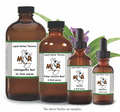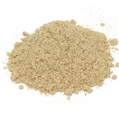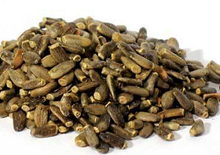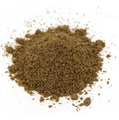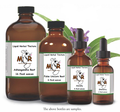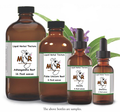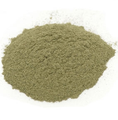 Loading... Please wait...
Loading... Please wait...- Home
- Bulk Herbs
- Herbs (M-N)
- Milk Thistle Seed
- Home
- Herbs - Organically Grown & Wild Crafted USA
- M N O
- Milk Thistle Seed
- Home
- Herbs from Hawaii
- Milk Thistle Seed
Product Description
Milk Thistle Seed, Whole
Wild Crafted - Hawaii, USA
Also Known As –Silybum marianum
Overview - This Mediterranean native has spread to Europe, Australia and North America. Milk thistle has naturalized itself quite readily, and in many places they are now considered noxious weeds. Its usefulness was discovered early, however and herbal remedies from the herb have been used medicinally for over 2,000 years.
Medicinal Uses - Milk thistle supports the liver and helps it to detoxify. It is useful in conditions of jaundice or hepatitis. It is antioxidant and helps prevent free radical damage. The herb stimulates the production of new liver cells and can treat skin conditions related to liver function. It is helpful for cirrhosis, necrosis and damage from drug and alcohol abuse. Other uses for include chemotherapy recovery, environmental sensitivity therapy, cholelithiasis, HIV infection, hemorrhoids and anyone who is on medications that may compromise the liver.
Parts Used - The seeds are powdered or liquefied for extract.
Precautions - Milk thistle can have a laxative effect and people can sometimes develop diarrhea, bloating and upset stomach. If you are allergic to ragweed, chrysanthemum or marigold, be cautious taking this herb. Some studies suggest that it may slow down some liver enzymes that process some medications.
- With this enzyme slowed down, levels of these medications may increase to unsafe levels. Ask your physician about interactions if you are on cardiac medications, antibiotics, anti-seizure drugs, antidepressants, antihistamines, antifungals, gastrointestinal motility agents, ergot, anti-psychotics, sedatives, transplant drugs, anti-parasite drugs or hormones like estrogen.
- Milk thistle also stimulates the menstrual cycle and the uterus. It may be good practice when taking this herbal medicine to take a break of one week per month.
Preparation and Dosage - Seventy pounds of milk thistle seeds make one pound of extract. Today's commercially prepared extracts are standardized, making them more effective overall. The compounds in this herb are not easily assimilated by the body so it is very important to follow the instructions on the label of your remedies carefully.
Disclaimer - The information presented herein by Mountain Maus’ Remedies is intended for educational purposes only. These statements have not been evaluated by the FDA and are not intended to diagnose, cure, treat or prevent disease. Individual results may vary, and before using any supplements, it is always advisable to consult with your own health care provider.







